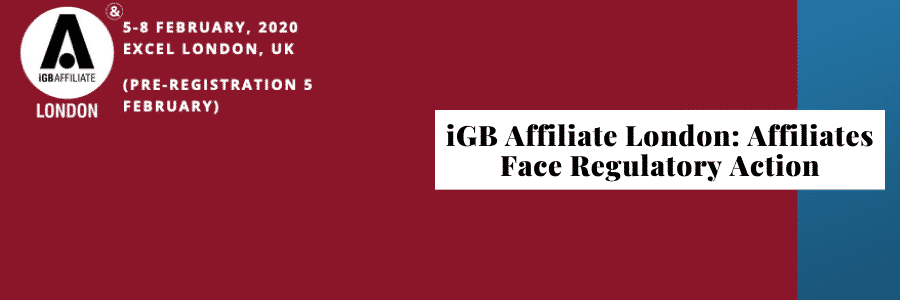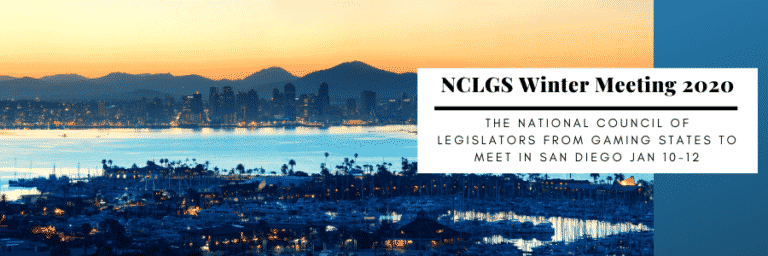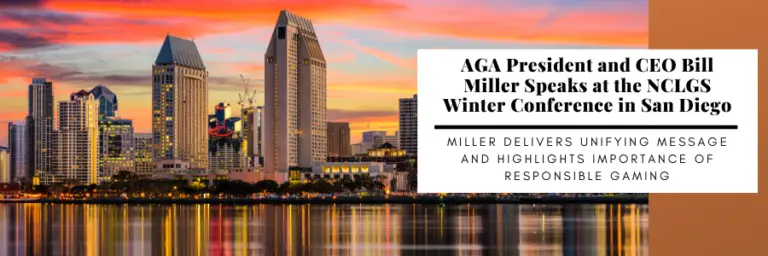Crisis Talk: UK Gambling Affiliates Address Licensing Threat

As ICE week progresses, attention turns to the IGB Affiliate Conference that takes place just down the hall from the main show at the ExCel Center.
This conjunction of the two events brings the gambling industry much closer to one of its major player acquisition tools: affiliates. Perhaps too close going by the statements emanating earlier in the week from the chief executives of many of the leading companies speaking at Westminster.
The comments from Kenny Alexander, namely that the affiliate sector should be licensed, provided what might politely be called a ‘talking point’ for those attending at ExCel. Alternatively, it might instead be seen as a hand grenade being thrown in the general direction of the affiliates, and never mind who gets hit by the collateral damage.
The chief executive of the still relatively formative Responsible Affiliates in Gambling (RAIG) attempted to defuse the explosive during the opening panel of LAC, suggesting that the idea that affiliates should be licensed was “bonkers”.
The whole point of RAIG, it can be surmised, is that it is an attempt to stave off the prospect of potential licensing in the UK by showing that the sector is capable of self-regulating.
“You can never say whether self-regulation will make a difference but if you don’t do anything then bad things will happen,” Clive Hawkswood told the audience. “Ideally we would have done this two years ago.”
Turning Back the Clock
Hawkswood made the point that the Lords on the select committee which hosted the interrogation of the gambling sector’s luminaries probably had little understanding of what exactly an affiliate working in the gambling space did.
“I don’t think anyone in that Committee room understood affiliates,” he claimed. “Besides, there is regulation via CAP and the ASA (both advertising standards) and ICO (the information omission) rules. So what is the gap that licensing would fill? It is hard to see.”
Yet, licensing is exactly what we have seen in the legal US online gambling sector, with New Jersey opting to corral affiliates engaged in revenue-share and CPA agreements with gambling operators.
It means that RAIG’s efforts to increase awareness of the affiliates with the politicians might be too little, too late. Guy Harding, head of commercial at Oddschecker said, “Kenny (Alexander) was dismissive of affiliate importance; this is why it is important to educate,” but Karl Pugh, director of business development at Better Collective admitted that while he “didn’t agree with Kenny” ultimately the decision over licensing was “not in our hands.”
As the gambling industry in the UK itself has found out, all the momentum when it comes to regulation is towards harsher and less business-friendly oversight. An element of this is that the operators are now more clearly being held responsible for the actions of affiliates advertising their products and directing traffic to their sites.
On a later panel David Clifton, director at legal consultancy Clifton Davies, pointed out that while this was always the case, what has changed is that backdrop has changed. “It is now a trickier landscape and the Commission has given itself greater powers.”
Act Now, Worry Later
Then there is the prospect of the review of gambling promised by the new Conservative government. The gambling industry has good reason to fear such a review because, as Clifton says, “nothing is off the table and gambling advertising is absolutely under the microscope.”
“There is a sense of crisis in the UK and advertising has been part of it,” he added. “Politicians are on to it and now we have a Gambling Act review. So, on the basis that you are carrying out an advertising function, the weakest link in the industry will be what is noticed. The affiliate sector should be worried.”
Clifton believes that the licensing of affiliates in the UK is unlikely partly because of the stated aversion of the Commission to the idea. But still, he did note the news this week that the William Hill-owned Mr. Green had notified its online casino and gaming affiliates just this week to halt all promotion of its products forthwith.
“This is a fast-changing minefield at the moment.”
This minefield includes other UK operators cutting loose their affiliate activities, most particularly Sky Bet which back in late 2017 ended its entire program on the basis that it presented a “significant risk to our business”.
That move was predicted to spell more trouble for the affiliate sector than actually perhaps transpired. Perhaps similarly the bark of the politicians when it comes to affiliate activity will be worse than the bite of actual regulatory action.
But the problem for the wider European affiliate sector is that any move by the UK tends to be followed by other jurisdictions. Maarten Haijer, secretary-general for the European Gaming and Betting Association (EGBA) pointed out the credit card ban as effected by the UK was soon followed by similar moves in Spain, for instance. that shortly after the UK passed a ban on using credit cards for online gambling, Ireland started talking of similar moves.
“If licensing would start somewhere, it’s something that would get traction elsewhere,” he added.
Scott Longley has been a journalist since the early noughties covering personal finance, sport and the gambling industry. He has worked for a number of publications including Investor’s Week, Bloomberg Money, Football First, EGR and GamblingCompliance.com. He now writes for online and print titles across a wide range of sectors.






